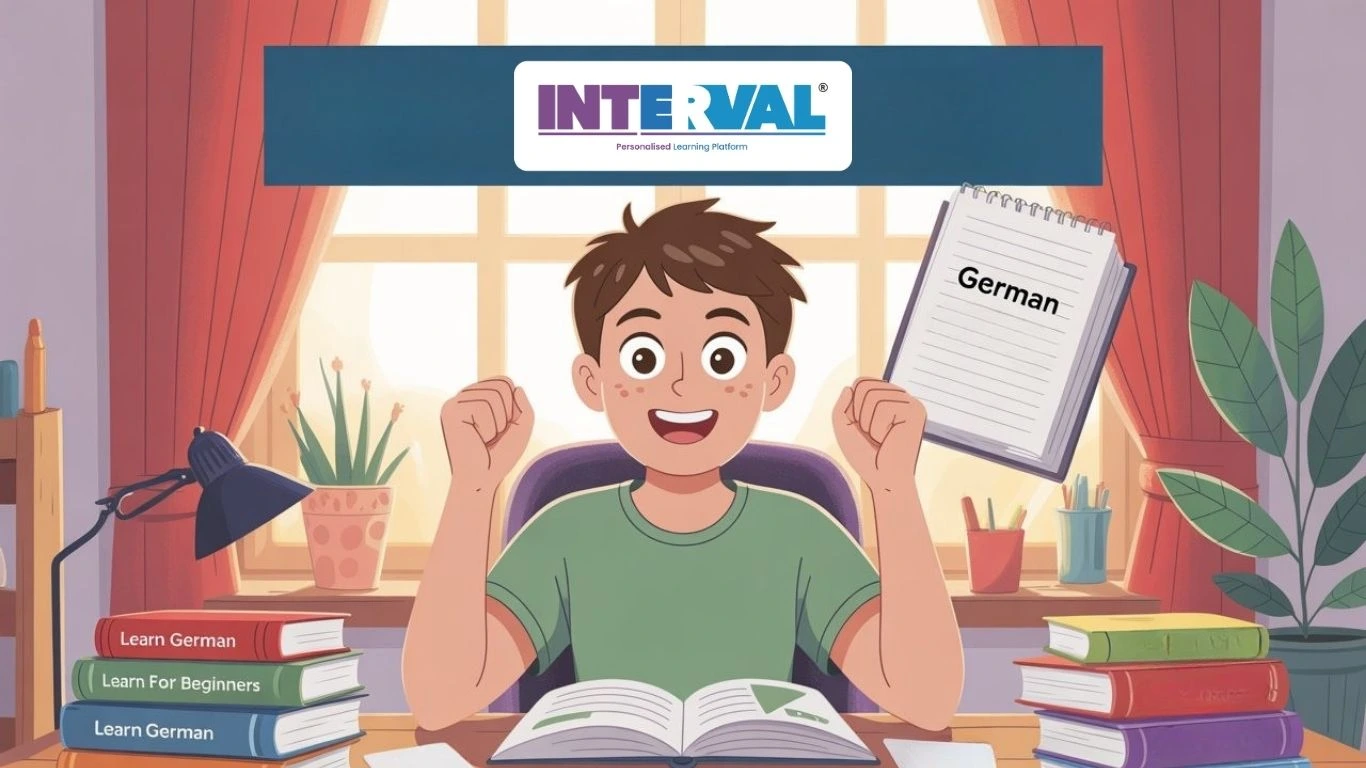Learn German for Beginners: Basic German Words & Phrases to Start




Learning a new language is one of the best ways to expand your world. German, spoken by over 100 million people across Europe, is not just a gateway to Germany, but also Austria, Switzerland, and parts of Belgium, Luxembourg, and Liechtenstein. If you’re looking to travel, study, work, or simply challenge yourself, German is a practical and rewarding language to learn.
For beginners, the German language can seem intimidating at first, long compound words, unfamiliar sounds, and formal versus informal speech. But don’t worry. You don’t have to master everything at once. Starting with basic German words and phrases is the perfect first step to build your confidence and feel comfortable using the language in everyday situations.
In this guide, we’ll walk you through essential German greetings, common conversation starters, survival phrases, numbers, everyday vocabulary, and tips for pronunciation and practice. Ready? Let’s get started.

Greetings are your first impression. Here are some must-know basic German words for beginners to say hello, thank you, and express politeness:
English | German | Pronunciation |
| Hello | Hallo | HA-loh |
| Good morning | Guten Morgen | GOO-ten MOR-gen |
| Good evening | Guten Abend | GOO-ten AH-bent |
| Good night | Gute Nacht | GOO-teh Nahkt |
| Goodbye | Auf Wiedersehen | OWF VEE-der-zay-en |
| See you soon | Bis bald | BISS balt |
| Please | Bitte | BI-teh |
| Thank you | Danke | DAN-keh |
| Yes | Ja | Yah |
| No | Nein | Nine |
| Excuse me / Sorry | Entschuldigung | Ent-SHOOL-dee-goong |
Using polite phrases regularly shows respect and instantly makes conversations smoother, even if your grammar isn’t perfect.
Small talk and introductions are great ways to start using the language. These basic German phrases will help you talk to new people, ask questions, and express yourself.
English | German |
| My name is… | Ich heiße… |
| How are you? | Wie geht’s? |
| I’m fine, thank you | Mir geht’s gut, danke |
| Do you speak English? | Sprechen Sie Englisch? |
| I don’t understand | Ich verstehe nicht |
| Could you repeat that? | Können Sie das wiederholen? |
| Please speak slowly | Sprechen Sie bitte langsam |
| Where are you from? | Woher kommen Sie? |
| I am from India | Ich komme aus Indien |
These phrases are especially useful when meeting people or asking for help in a new place.
Here’s a list of common German words that are part of daily conversation and help you navigate situations like shopping, eating, or exploring a city.
English | German |
| Man | Mann |
| Woman | Frau |
| Child | Kind |
| Friend (male) | Freund |
| Friend (female) | Freundin |
| Water | Wasser |
| Food | Essen |
| Money | Geld |
| House | Haus |
| Car | Auto |
| Bus | Bus |
| Book | Buch |
| School | Schule |
| City | Stadt |
| Love | Liebe |
| Time | Zeit |
By practicing these basic German words for beginners, you’ll find it easier to recognize vocabulary around you, on signs, menus, or when talking to others.
Learning numbers is essential, especially for shopping, transport, or time. Start with these:
English | German |
| One | Eins |
| Two | Zwei |
| Three | Drei |
| Four | Vier |
| Five | Fünf |
| Six | Sechs |
| Seven | Sieben |
| Eight | Acht |
| Nine | Neun |
| Ten | Zehn |
| Twenty | Zwanzig |
Once you’ve memorized the numbers 1–10, continue learning patterns in numbers 11–100. They follow regular rules in German.
Knowing how to ask simple questions and give short answers is the key to interacting confidently. Here are some common German phrases:
English | German |
| Where is the bathroom? | Wo ist die Toilette? |
| How much does this cost? | Wie viel kostet das? |
| What’s your name? | Wie heißen Sie? |
| Can I have the menu, please? | Die Speisekarte, bitte |
| Can you help me? | Können Sie mir helfen? |
| I’m lost | Ich habe mich verirrt |
These simple Q&A patterns are very helpful when dining out, shopping, or navigating public places.
When traveling, some phrases are crucial. These will help you manage unexpected situations:
Always keep these in mind, especially when traveling solo or visiting a new German-speaking city.
Pronouncing German words correctly helps people understand you better. Here are a few tips:
Listening to native speakers through audio lessons or apps can improve your accent naturally.
A few smart ways to retain new words and phrases:
Consistency is more important than duration. Ten focused minutes a day are better than an hour once a week.
To make your German learning journey smoother, here are some tools and platforms:
And of course, if you want personalized guidance
Learning German online in 2025 is one of the best ways to explore new opportunities—whether you want to study abroad, work for a global company, travel across Europe, or simply pick up a new skill. The good news? Thanks to the internet, learning German today is more flexible, convenient, and beginner-friendly than ever before.
This guide is perfect for students, working professionals, or anyone just starting out. It will help you take your first steps toward understanding, speaking, reading, and writing in German—with simple tips and tools to get you started.
If you’re looking for a full step-by-step plan, check out our detailed blog:
If you're a beginner wondering which German book will guide you step by step, this guide is for you. We’ve listed the top 5 German books for beginners
Starting your German learning journey doesn’t have to be difficult. By focusing on basic German words, common phrases, and practical usage, you can make fast progress. Consistency, speaking practice, and the right resources can take you from a beginner to a confident communicator.
So don’t wait for the perfect time; start today, and you’ll be surprised how quickly you can learn.
Learning a language is easier when experts guide you. At Interval Learning, our Speak German course is designed not just for absolute beginners, but also for school students, working professionals, and anyone who wants to learn a new language. Whether you're starting with “Hallo” or already know a bit of German, this course will help you confidently build real conversation skills in just a few months.
What you get:
Whether you're a student, a professional, or someone who simply wants to learn a new language, this course is perfect to build fluency with confidence.
Book a demo Class with Interval Learning today and start your journey to speaking German effortlessly.
Join Interval Learning’s Speak German course now to take the first step!
Not really! German has logical grammar rules and many shared words with English. With consistent practice, most beginners start speaking simple sentences within a month.
With daily practice, most learners can hold basic conversations in 2 to 3 months.
No. Start with simple phrases and gradually build grammar knowledge through use.
Absolutely. With online classes, native audio, and daily practice, you can learn German effectively from home.
It’s beginner-friendly, personalized, and focused on speaking. You get regular live sessions, feedback, and all the support you need to build your confidence.